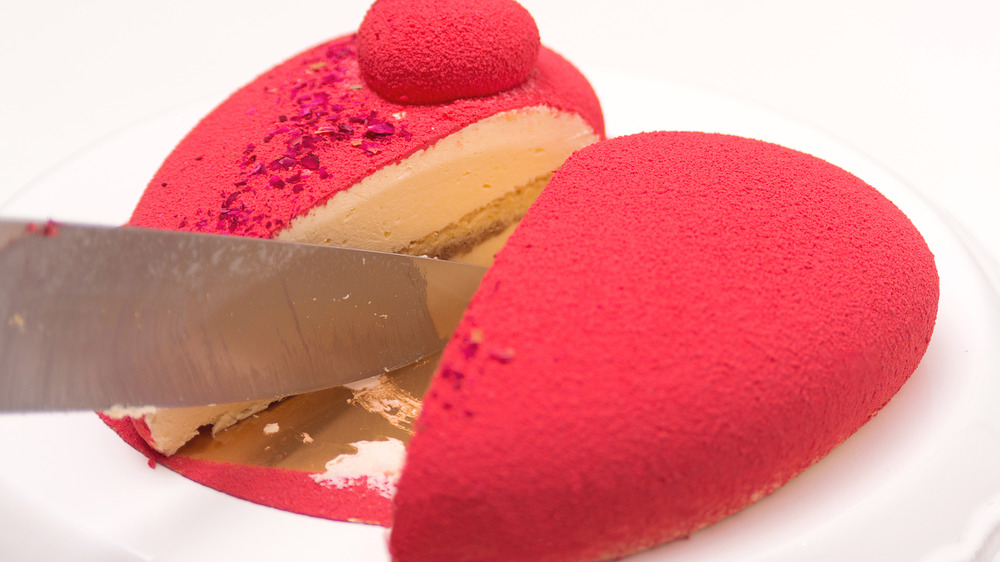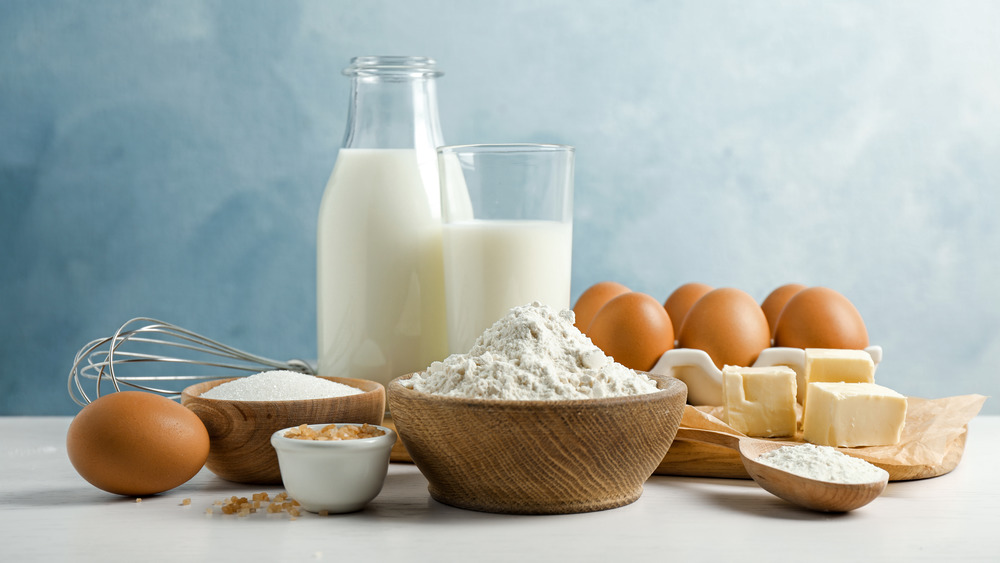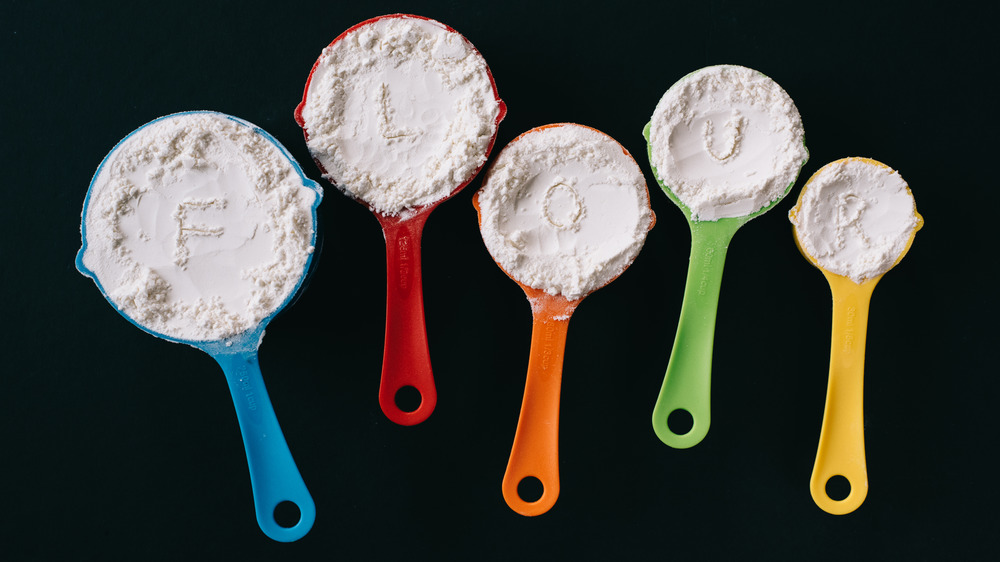The Huge Mistake That Will Ruin Your Cake
As anyone who's ever watched the Food Network knows, cake baking is fraught with all manner of perils. Even if you're not creating a 4-tier replica of the Roman Colosseum complete with fondant statuary, there's still many a slip 'twixt the pan and the plate. (We're not even going to get into decorating fails here, especially since some of the more epic accidentally-on-purpose ones might be inspired by a desire to appear on Nailed It!)
Still, if you're going to take the trouble to bake a cake from scratch, or even put your own spin on a boxed mix, you want to wind up with something edible, right? Elizabeth Nelson, a test kitchen manager with baking supply manufacturer Wilton, spoke to Mashed about something she considers to be crucial to producing a successful cake. She tells us it all begins with the mise en place, which she translates to mean "getting everything in its place."
Have all ingredients on hand and at the right temperature
Nelson's top piece of advice for cake bakers is simply this: "You should always pull together all of your ingredients before you get started mixing." When we asked her why this was so important, she told us, "If you don't gather your ingredients first and just start mixing, you might find out halfway through that you're out of an important item like baking powder." (Not to mention, the disastrous results that might occur if you mistake baking powder for baking soda since these are NOT THE SAME THING.) While she admitted that it may be possible to find an acceptable substitute for a missing ingredient, having to make too many such swaps will change the recipe, and probably not for the better.
Another piece of advice Nelson had regarding advance preparation was to have all of the dairy products (butter, eggs, milk, etc.) at room temperature before you begin baking – unless the recipe specifies otherwise, of course. The reason for this is that, as she reminds us, "baking...is a science," and explains that if ingredients are "too cold or too warm...you can end up with a cake that is lumpy or heavy and dense." She says it's particularly important to soften your butter before using it in a cake batter since only soft butter "can hold those little pockets of air that lead to a fluffy cake."
Correct measurements are also crucial
If you really want to be super-organized before you begin baking, you can even measure out your ingredients ahead of time, but that's not necessary. What is vital, however, is that you measure them properly when you do use them. Nelson told us that using a scale is the most accurate way to measure ingredients. If you don't have one, that's ok. Culinary expert Sara Wais, also a Wilton employee, spoke with us earlier about the proper technique for measuring flour and other dry ingredients: scoop into measuring cup, then level off with knife or spatula. Be careful not to press down too hard, though. Nelson warns that "packing too much flour into a measuring cup can lead to a dry, heavy, bready cake." She also points out that a liquid measuring cup is different than the cups used for dry ingredients, so if you don't have this item on hand, you should get one.
While Nelson admits that not having the necessary ingredients and equipment all ready to go before you start baking "may seem like a very obvious mistake," she goes on to say that "a lot can go wrong along the way," so taking that little bit of extra time needed to be prepared will go a long way to ensuring that your cake comes out of the oven as delicious as it ought to be. (Any subsequent frosting foul-ups or fondant faux pas are on you, though.)


